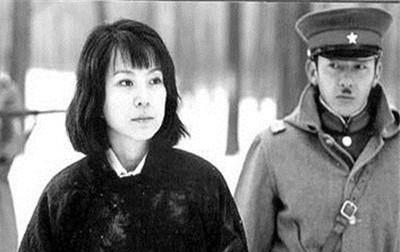The bloody battle of life, the history of moving forward, is like the formation of coal, when a large amount of wood was used, but the result was a small piece of coal. --Lu Xun

When the Wuhan branch of the Whampoa Military Academy was established, China sent many comrades to work at the military academy, such as Yun Daiying as a political instructor, he was also in charge of the work of the girls' team, Shi Cuntong was appointed director of the political department, and Ye Yong and Lu Gengfu held important posts in the political department. Political instructors Gao Yuhan, Tan Pingshan, Shen Yanbing, Li Da, Li Hanjun, Xu Dewangxing, and others are also mostly members of the Communist Party, and most of the middle and lower-ranking military and political cadres are communists, such as Xu, the former leader of the 1st political brigade, Peng Yilan and Zhong Fuguang as the instructors of the girls' team, and Chen Yi "ostensibly as a clerk, but in fact the secretary of the Communist Party committee." Li Mingke served as the party's liaison officer, and so on.
In February 1926, 183 girls were officially enrolled, and 30 girls from the South Lake Cadet Corps were merged into the Whampoa Military Academy Girls' Team, which expanded to 213 students. Some of the women's teams of the Whampoa Military Academy are college students, and a considerable number of them are middle school students. Some have become mothers, and some have even wrapped their feet. Judging from the origin, age, education level, and political outlook, most of them are uneven. Among them, xiao Chunu and Yun Daiying's students in Chongqing and Luzhou accepted the influence of the revolution earlier and had a certain theoretical level; some of them made great contributions in patriotic movements such as boycotting enemies, but others basically "have patriotic hearts and lack of knowledge." In any case, they all have a common feature, that is, they dare to break through the feudal barriers and plunge into the vigorous revolutionary torrent.
Do as much work as male cadets and receive all the rigorous training of the military academy
Eating in the canteen is also militarized, as long as the captain puts down his chopsticks, the students must all stand up, and those who have not finished eating must be criticized. From waking up at 5:30 a.m. to going to bed at 9:30 p.m., there was no time to rest. 8 lessons per day, 4 disciplines, 4 surgical lessons. Military training courses include infantry drills, shooting training, and on-the-spot military exercises in Snake Mountain to "fight in the wild." They receive all the rigorous training in the school, do as much work as boys, and have the potential to not let their eyebrows be shaved.
The most famous of these is Zhao Yiman. Her original name was Li Kuntai, also known as Li Yichao, a native of Yibin, Sichuan, who joined the Wuhan branch of the Whampoa Military Academy in 1926 and joined the Communist Party of China in the same year. After the September 18 Incident in 1931, he was sent to the northeast. In the spring of 1935, he served as the secretary of the Zhuhe County Railway North District Committee and the political commissar of the Second Regiment of the Third Army of the Northeast Anti-Japanese Coalition Army, but in November of the same year, he was wounded and captured in battle with the Japanese army. The fierce Japanese stripped her of her ribs alive and finally died on August 28, 1936.